Buying a house in Lanzarote
It sounds tempting. A second home in a warm climate. How about on the Canary Islands? Prices are more than reasonable. For the price of an apartment in Prague, you can get a house with a pool here. But it's not simple. Prepare a big dose of patience, you will need it.
We have prepared a guide for you on how to go about it if you decide to acquire a property abroad. Perhaps we chose a complicated, but all the more thorough, path.
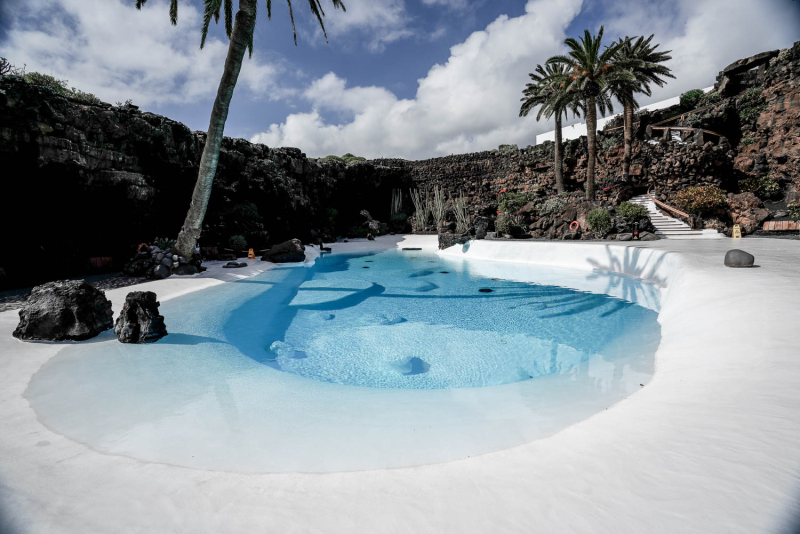
Which country? Which island?
The first decision was to choose a country or island. Portugal or Spain? Madeira, Mallorca, or the Canary Islands? We wanted somewhere warm even in winter, within the European Union, with direct flights available, and ideally with the potential for work opportunities. In the end, the Canary Islands emerged as the choice. But there are several islands. During the Covid lockdown, we explored several and found Lanzarote to be our favorite. Its color palette is unbeatable – white, black, and green. It's perfect, plus there's the incredible volcanic wine that you can't find on the other Canary Islands. Thanks to strict regulations, tourism isn't as rampant here as on Tenerife or Gran Canaria. So, we had our island.
We began searching for properties. The best resource turned out to be the Idealista website. It has the widest and most up-to-date selection. The prices initially excited us. For the price of an apartment in Prague, you can get a house with a pool in Lanzarote, but… there's always a but.
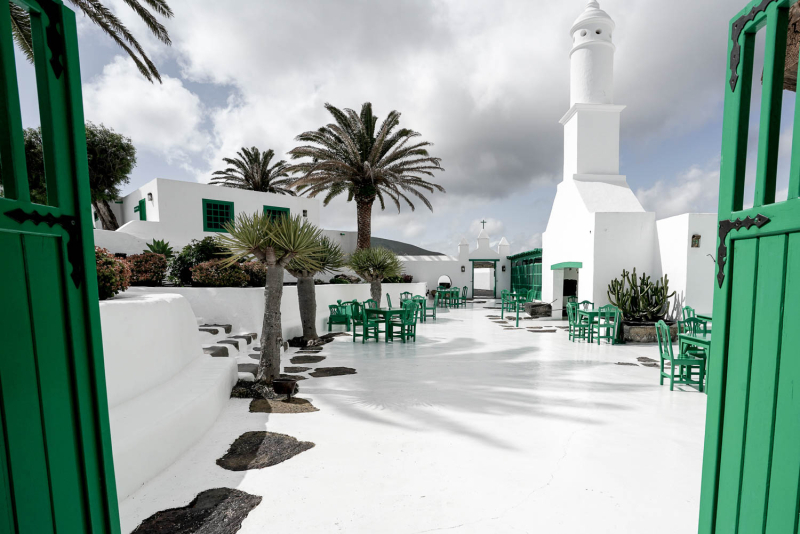
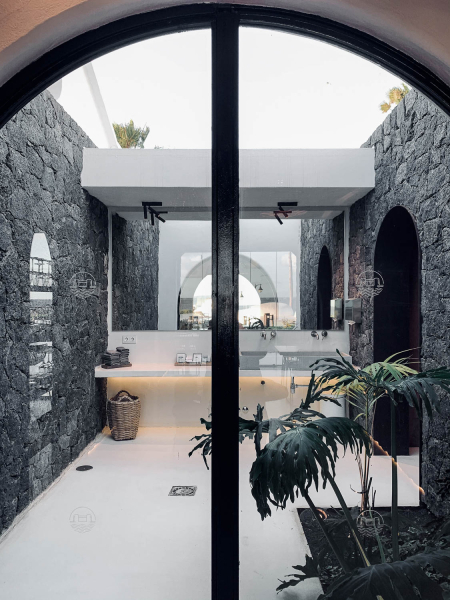
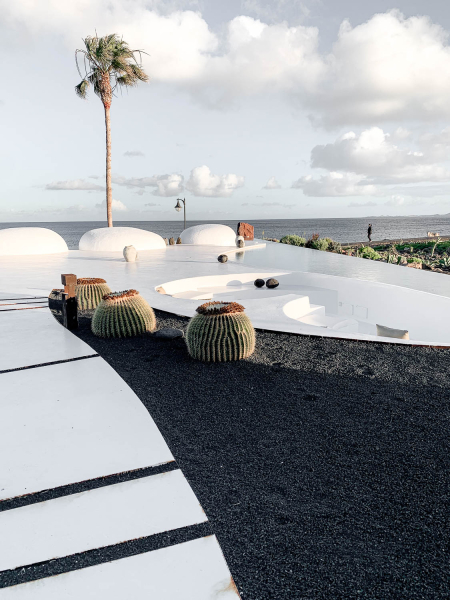
Location
The house must have potential, a nice location, and an interesting price, which isn't easy to find. It took us almost a year, and by the time we were driving from the airport, we knew every milestone. Initially, we visited the island with a different perspective than as tourists. You travel through places differently when you're just visiting for a few days compared to when you're considering living there. We crisscrossed the island back and forth and eventually selected areas we liked. We ruled out places with tourist congestion like Costa Teguise or Playa Blanca. We didn't "like" the north, which is nice for trips, but not so much for living; the infrastructure there is poor.
We wanted a view of the volcanoes, which isn't a problem on Lanzarote, as there are more than 300 of them. A sea view wasn't a condition because homes on the front line are almost twice as expensive. The idea of a beautiful deserted beach where waves splash in front of your windows and cliffs tower behind the house is more of a utopia. Lanzarote is actually a warm version of Iceland, a place we love but wouldn't want to live in. On Lanzarote, there are still moon-like wildernesses, a relatively large Timanfaya National Park of volcanoes, and the incredible architecture from the hands of César Manrique, who shaped the face of the entire island and implemented strict building regulations.
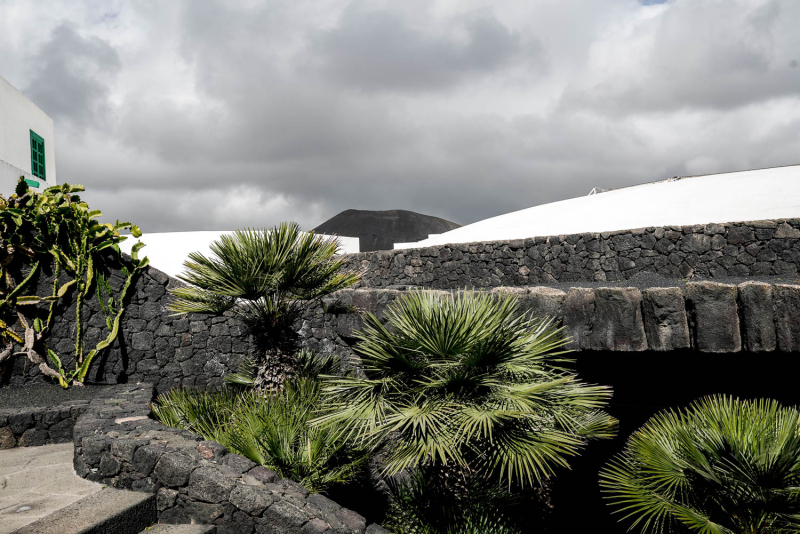
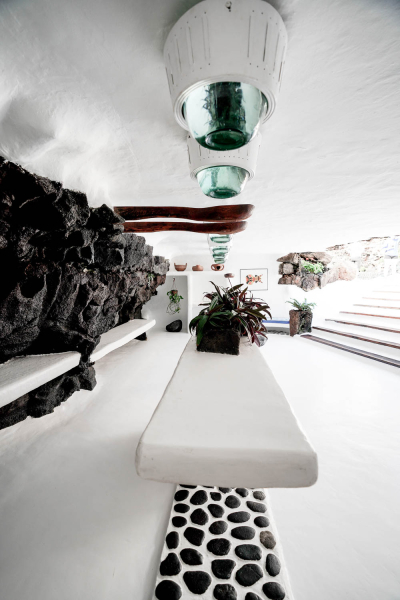
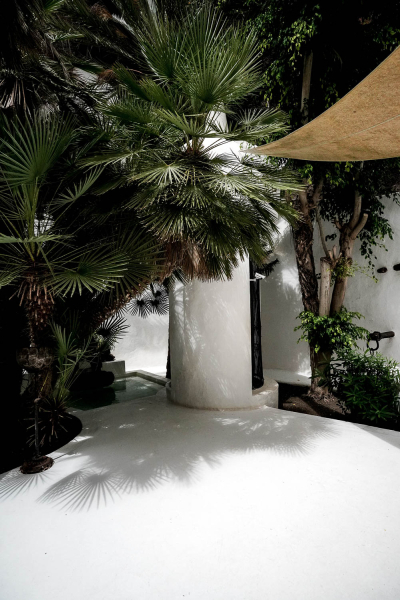
Searching and Viewings
We had our location and proceeded to select a property. The market is quite broad. However, not everything that is published is available. We often encountered properties that were already sold, with agencies seemingly inflating their portfolios for show, and in reality, there were far fewer properties available. Communication and the quality of real estate agents varied greatly; some responded immediately, some not at all. Sometimes you get the feeling that they don't actually want to sell the properties, that it's a bother to them. We decided to approach one smaller agency that would then arrange viewings for other properties as well, but we would only communicate with one. Among the agencies, it works in such a way that they share the commission. Sometimes, you find yourself in the bizarre situation of having three agencies at a viewing. We sent our first tips and filtered out what seemed suspicious.
We set out for the first viewings. It was challenging; we had scheduled about 16 of them. The condition of the houses was often deplorable. This explained the attractive prices seen during the initial online research. That year, many houses appeared on the market that Britons had to sell due to Brexit. They can no longer spend as much time on the islands due to visa requirements. However, their houses are in terrible condition. Another problem is that a large majority of the houses have been extended illegally, contrary to the building permit. Honestly, there might not even be as many illegal constructions in our country. The price corresponds to the house in its extended form, but the bank will only lend you for the value of the legally permitted part. Moreover, we are completely exhausted from dealing with building permits in the Czech Republic, and something tells us that it won't be any easier in Spain.
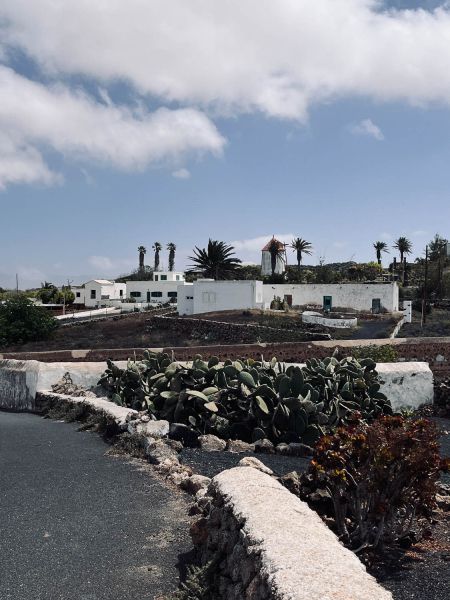
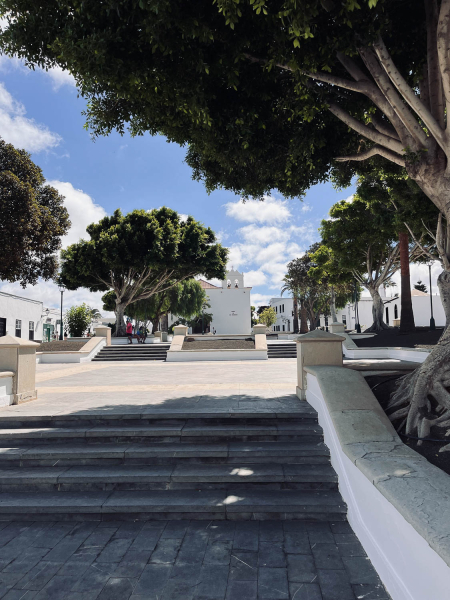
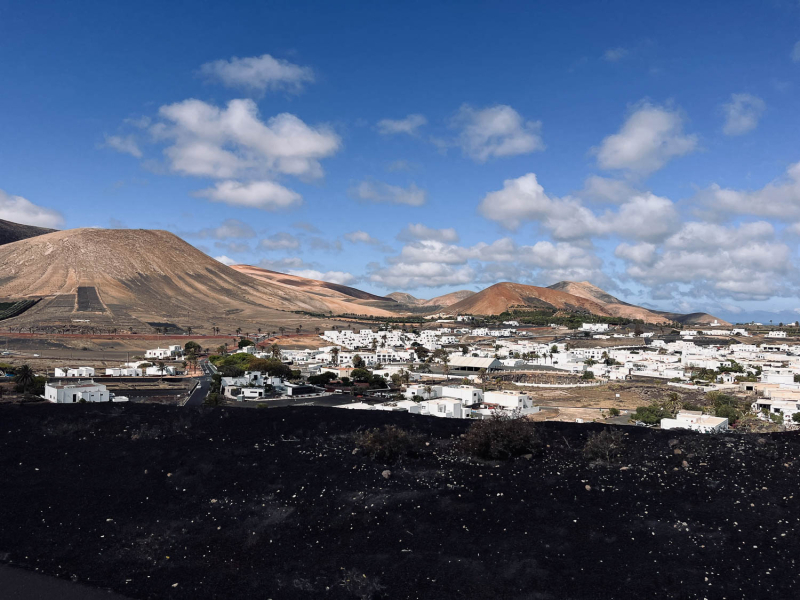
#1 Attempt
From the first visit, we had two favorites. We eventually gave up on one due to the price, but the other looked promising. So, a promising start – we found a potential hit right after our initial viewings. We decided to come back in a few weeks for a second viewing. Here we encountered the first problems. The real estate agency did not respond. Even after our arrival, they were unable to show us the house again. They started to play tricks, saying they would make the house available, but about two days after we were scheduled to leave. So we had to come for the third time. We suggested renting the house for one night. This is an ideal option, as it allows for a longer and more thorough inspection, which you usually can't manage in the first 15 minutes. Most properties are available for holiday rentals, so it is possible. Our second visit was a reality check. The surroundings were not as beautiful as we remembered. A strange neighbor in a trailer and a vacant lot towards the only view was already for sale for a development project. We didn't even stay overnight in the house and gave up right away. The renovation looked more demanding than at the first visit – faded plastic windows, roof leaks, and leaks around skylights. And no, they can't insulate roofs; although it rarely rains on the island, the nighttime air humidity is such that water drips from the roofs in the morning. Moreover, the real estate agency locked half of the house, claiming we didn't need access to everything just to spend the night.
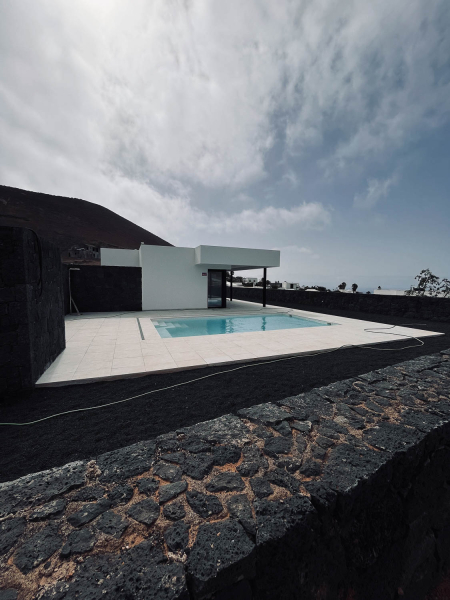
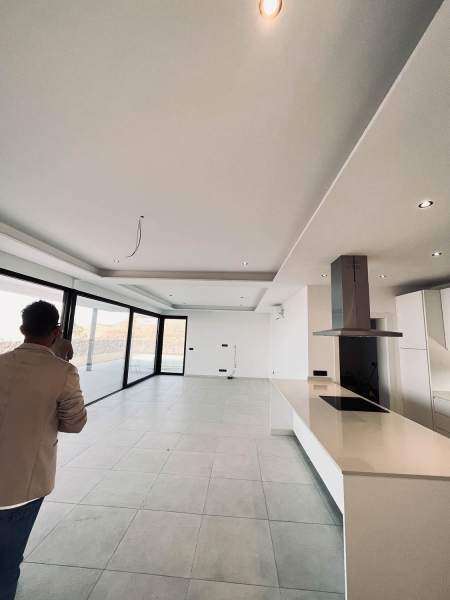
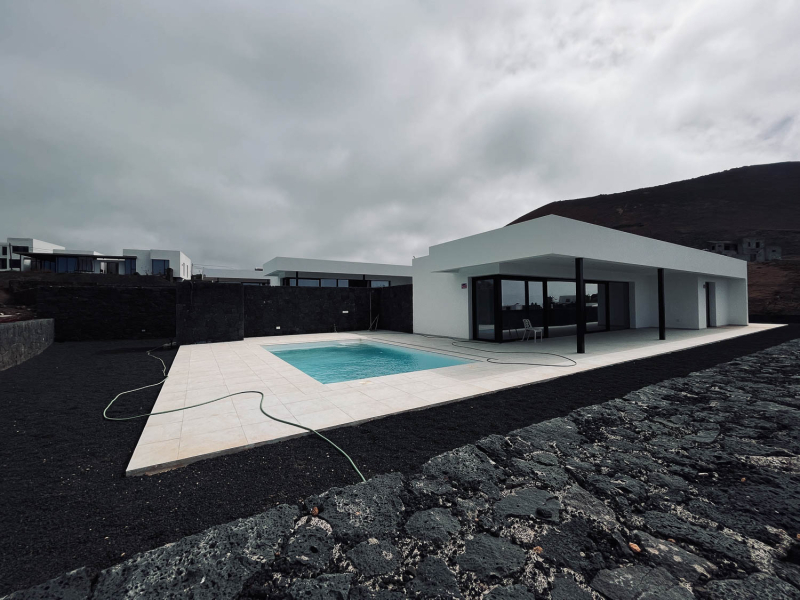
#2 Attempt
We continued exploring the island. We found a relatively newer house, used for a few years, but with beautiful architecture in a closed resort, a superb garden, and a large pool. We approached our agency to arrange a one-night rental for us. Here, our own agency began to show signs of friction. Their initial enthusiasm turned into reluctance. So we reached out on our own to the company that rented out the house and discovered they were the owners as well. They own about 17 villas in the entire resort, which they rent out and have decided to sell a portion of them while continuing to rent them out for the new owners. It sounded great because the purchase already came with a solution for part of the year when we would be renting out the house anyway. The VV (Vivienda Vacacional) license was issued, and the management company was thereby secured. However, the conditions were crazy. All rental profits are split in half between the owner and the rental company. Costs for utilities and taxes are the owner's responsibility, and if the owner wanted to visit, they had to pay rent so the rental company wouldn't lose out. A 10-year contract. Simply madness. Moreover, it turned out on-site that all the neighbors, whose houses are half a floor higher, overlook the entire garden and pool, and a street lamp shining directly into the living room couldn't be shaded. That's why it's good to rent a property for a night.
This is where we parted ways with "our" agency. It turned out that instead of the usual 3% commission, they wanted to add 7%, and we had organized the viewings and everything around them ourselves. So we thanked them and continued our search on our own.
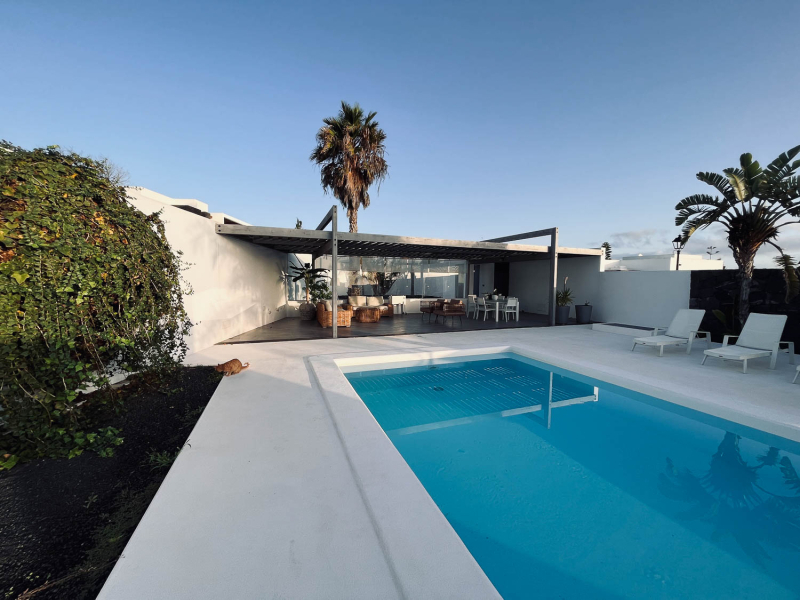
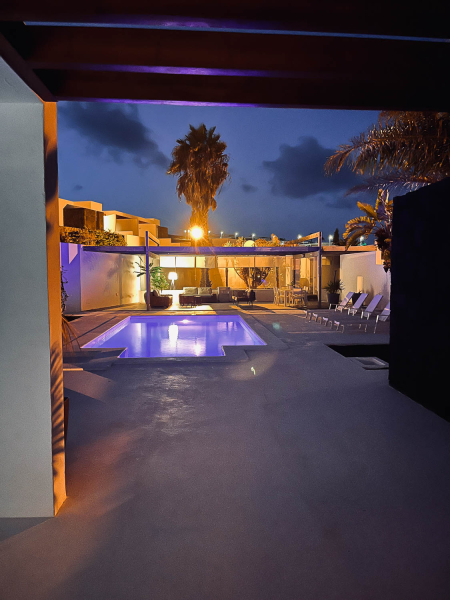
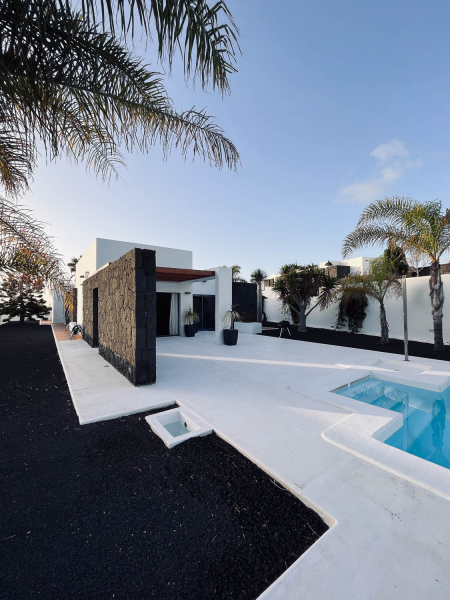
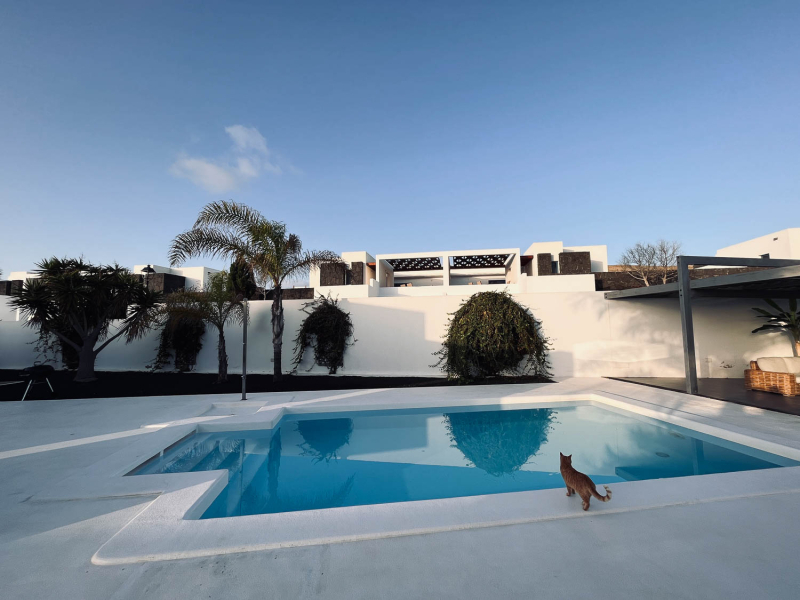
#3 Attempt
We discovered an unfinished new build, moreover in a peaceful village with the most beautiful sunset view. All the houses there have ample space and privacy, simply paradise. The new build was in an ideal state – just the shell. So, there would be an opportunity to finish the house to our liking. The builder was amenable to this. We just had to clarify what could be done before final approval and what could only be done afterwards. I immediately went on a tour of the showrooms for flooring, bathrooms, and kitchens and made all the selections. The financing also seemed ideal. A 20% deposit upon signing the contract and the balance due after final approval. This would give us enough time to arrange a mortgage. We sent the "client changes" and waited for the lawyers' feedback. And from them came the advice – we do not recommend! Why? By law in Spain, 10% of the deposit is protected, the rest is not. Every builder/developer is required to have insurance in case they cannot meet their obligations and fail to complete the construction. The insurance company would then refund the deposit. However, the insurance is expensive and the builder did not have it. We therefore suggested that we send the deposit to an escrow account held by lawyers, but the builder found this unacceptable. Moreover, he told us that if we decided later on, the house would gradually become more expensive. And even during our discussion, he increased the price by 20,000 Euros. They really know how to play the game.
It was challenging, so we decided to take a short break. After all, we had been in Lanzarote every month from June to November. We planned the next round for April.
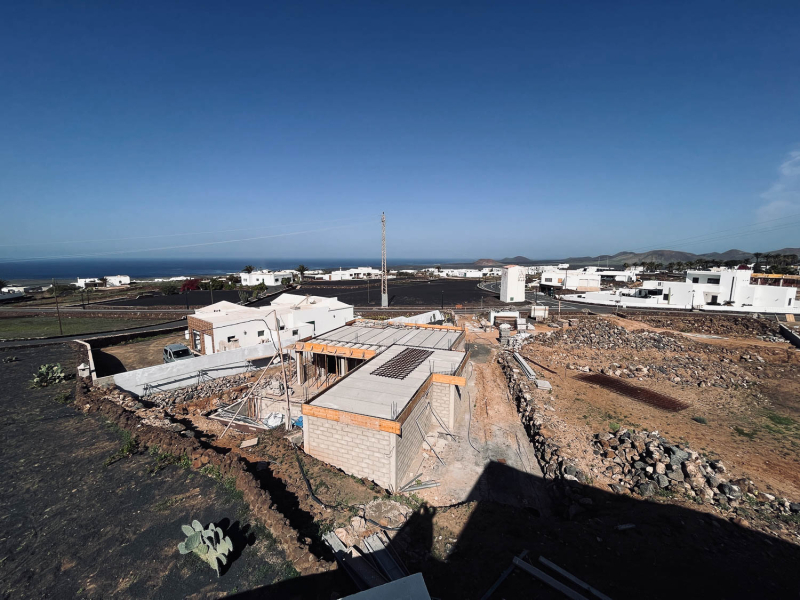
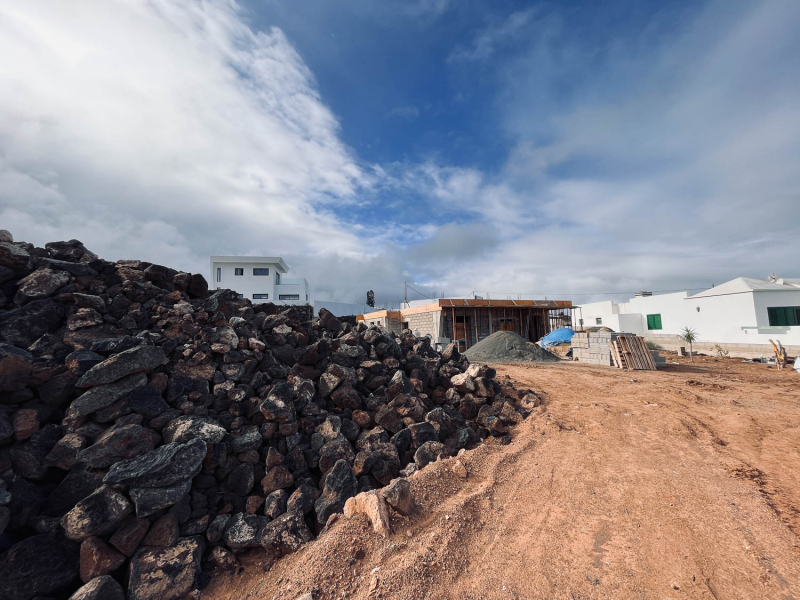
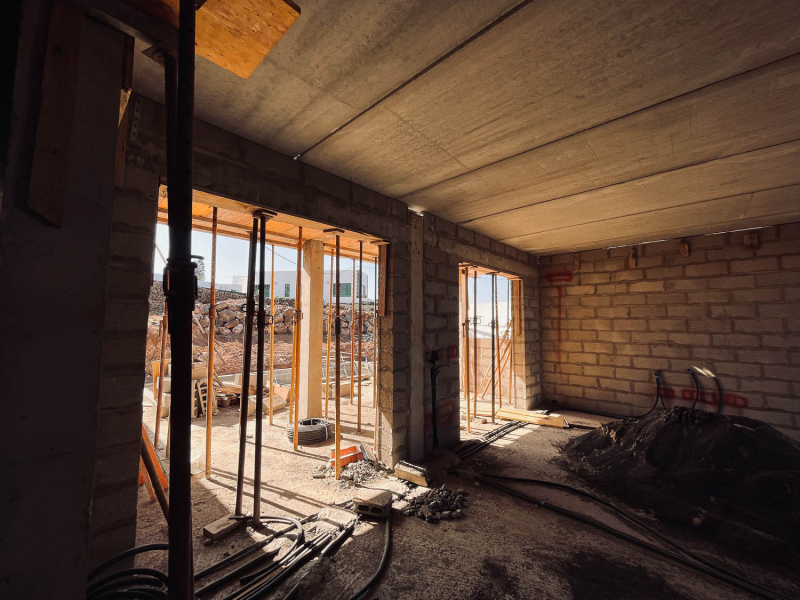
#4 Attempt and Hopefully the Last:
The preparation was thorough, everything meticulously planned to the minute. Well, at least on my part, not so much for the Canarians. Just before the viewings, agents started calling me to say that the viewing wasn't possible because the owner had rented out the house. To this day, I don't understand why someone who is selling a house tries to earn the last euros from renting it out, giving preference to a few hundred over a potential sale. It wasn't the first time.
Once again, I went through several absurdities until I found the right one. A huge relief is the fact that both the seller and we share the same law firm, so we saved ourselves the lengthy contract negotiations, and everything so far seems to be in order. Could it be that this time it will work out?
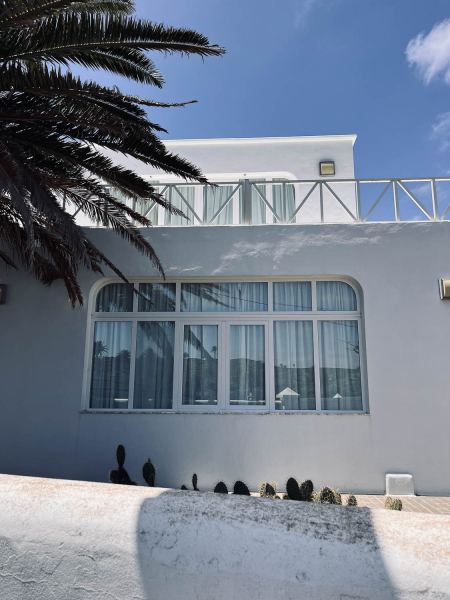
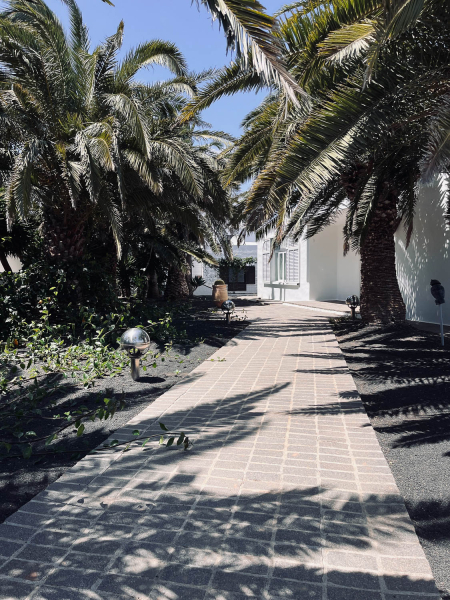
In Spain, when purchasing property, the following practices are common:
- If you express interest in a property, a non-refundable deposit of 1% of the price is paid, and then further viewings are stopped.
- If you decide to purchase the property, you pay the remaining 9% to complete the 10% deposit, which is protected by law. If you fail to pay the full purchase price, the deposit is forfeited. If obstacles arise on the seller's side that prevent the sale, the 10% deposit is returned to you, and the seller must compensate you with an additional 10% from their own funds as damages. After paying the deposit, lawyers have time to thoroughly examine the entire matter.
- Real estate agencies often share listings among themselves, and on-site, you sign a viewing protocol to clarify who brought the client.
- Photos can be deceptive, but this is not exclusive to Spain. Especially with older properties, an inspection is necessary. Besides assessing whether you like the house, look at the technical condition. The most important thing to check for is water ingress – this can be seen above the floor, below the ceiling, and around skylights.
- Always request a "Nota Simple." This is a form of land registry extract that indicates what is actually permitted or registered. It often happens that houses are extended after final inspection.
- There is a rule that you can extend a house and if no one objects within five years and the zoning plan allows it, you can register the change.
- Extensions with a wooden roof do not need to be permitted. Various extensions are often roofed in this way.
- Every house must have a "Solana." This is a chamber or annex (even without a roof) where the washing machine is located, which should not be in the bathroom.
- Always check the zoning plan. It depends on whether the land is buildable or rural, on which even a swimming pool cannot be built.
- To purchase property, you need an NIE (numero de identidad extranjero) – a foreigner's identification number. It can take months to receive. If you're considering something similar, apply for the NIE well in advance. It can be done online or through local lawyers. We gave up on handling it ourselves, as it requires a visit to the immigration police. The last option is to apply through the Spanish embassy in Prague or elsewhere in the EU, but the waiting times are even longer.
- Arrange for local lawyers; you can't function without them. We did a survey among real estate agencies and chose the one that was mentioned most often. We signed a power of attorney for them, and they can represent us in signing various documents. Verification of the power of attorney is necessary by Czech notaries who conduct verification in English or Spanish, and their signature must then be apostilled.
- It's not necessary to speak Spanish; so far, we've managed to communicate comfortably in English everywhere, and most real estate agents are not of Spanish origin; they are foreigners working on the island.
- Expect a relatively high property acquisition tax. It varies by location, with mainland Spain and popular regions being more expensive. All fees amount to around 8-10% of the purchase price, with the tax making up the majority.
Next time: How to arrange a Spanish mortgage.
by Radka - 10. 8. 2023